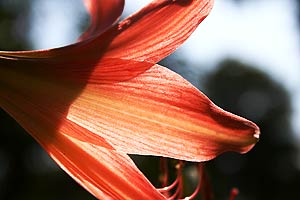Buddhists on Cutting Edge?
By Rod Bennett, The Korea Times, Jan 12, 2010
Seoul, South Korea -- Looking for the latest, coolest, hippest trend? Seeking out the thrill of the cutting edge? Well, if you are, then you probably don't have to look any further than your nearest Buddhist temple!
 That's right. Up there in those snowy mountain temples, the monks and nuns are at least one generation ahead of the rest of us in an activity that will soon become necessary for our survival: conservation.
That's right. Up there in those snowy mountain temples, the monks and nuns are at least one generation ahead of the rest of us in an activity that will soon become necessary for our survival: conservation.
I was at Bongin Temple in Gyeonggi Province over the New Year's weekend for a 72-hour period of silence. I've been to Bongin Temple several times, and there is much to appreciate there. But this time, it was not the full moon casting shadows on the courtyard that was so impressive. It was not the crisp air detoxifying our pollution-choked pores nor the snow-covered hills crisscrossed countless ways by the bare branches of a million trees, nor the dead silence which ushered in a moment's sanity in a thunderously warring world ? what was most impressive was how frugal those monastics were!
Let me give you a few examples of the monks' and nuns' consumption habits and see how we, the regular folk, could conveniently incorporate them into our own lives at the office or in the home.
1. Restricted use of paper cups The monastics each use only one paper cup per week. They take a cup, write their names on the bottom and use it over and over again. Let's pause here to think about our own paper cup consumption. Personally, I use a ceramic mug at work for coffee, but most of my co-workers use a new paper cup every time they have a cup of coffee, and each person averages two or three cups of coffee per day. This means that each one of my co-workers uses an average of 10 to 15 paper cups per week. Multiply that figure by 10 co-workers, and collectively, we use between 100 and 150 cups per week. This is unnecessary waste. Using our own mugs reduces waste and lowers costs for the office since we need to buy fewer paper cups.
2. Turning lights off Dinner time was approaching. Hallelujah, because my stomach was growling! I went to the hall a few minutes early ? 5:55 p.m. to be exact ? and I was shocked that it was totally dark in the dining room only five minutes before dinner was served. At approximately 5:59, the cook emerged from the kitchen and turned on the lights. Then at 6:30, when everybody had finished their meal, the lights in the hall were turned off again, not to be turned on until 6:30 the next morning.
3. Eat everything on your plate After several years of visiting various monasteries around the world, attending various meditation retreats and other programs, I have never seen a practitioner throw food away. That's a far cry from the amount of food left on the table after, say, a night of Korean barbecue! Food and water are the most valuable and precious commodities in our lives. They are dearer than diamonds, greater than gold. We must treat them as such. Would you throw your gold studs or diamond rings down the drain? That's what we're doing when we throw away food; and while it isn't within the scope of this article, it is not irrelevant to mention that the social and political consequences of food waste are staggering, leading to riots and geopolitical wars.
4. I never saw a monk with a plastic bottle Like everywhere else in Korea, there are water purifier machines in temples. This means that there is absolutely no reason whatsoever to purchase a single-use plastic water bottle. If you haven't come up with a New Year's resolution, I have one for you: do not buy another bottle of water for the duration of the new decade unless you plan to refill it 100 times. There are at least four opportunities each day to refill our bottles with purified water from these machines. Those bottles are beyond wasteful ? they are a monstrosity gathering into a vortex of an already Texas-sized Great Pacific Garbage Patch which is spiraling into an Asia-sized one.
Now we all know that Buddhists aren't the greatest of consumers, which may account for why they're so ill-funded. We all know they haven't changed their style of clothes in over 25 centuries. Maybe they can't advise us on stock options, or which precious metals to invest in or how to convince the National Assembly to build a transnational canal. But they are great conservationists. And cutting back on our own consumption patterns, individually, is the single most effective solution to the environmental crisis, as it is within our own power.
-----------------------
The writer is an English teacher in Seoul who steals away to the mountains every chance he gets, to sit still. He can be reached at Sleeper223@yahoo.com.

 That's right. Up there in those snowy mountain temples, the monks and nuns are at least one generation ahead of the rest of us in an activity that will soon become necessary for our survival: conservation.
That's right. Up there in those snowy mountain temples, the monks and nuns are at least one generation ahead of the rest of us in an activity that will soon become necessary for our survival: conservation.